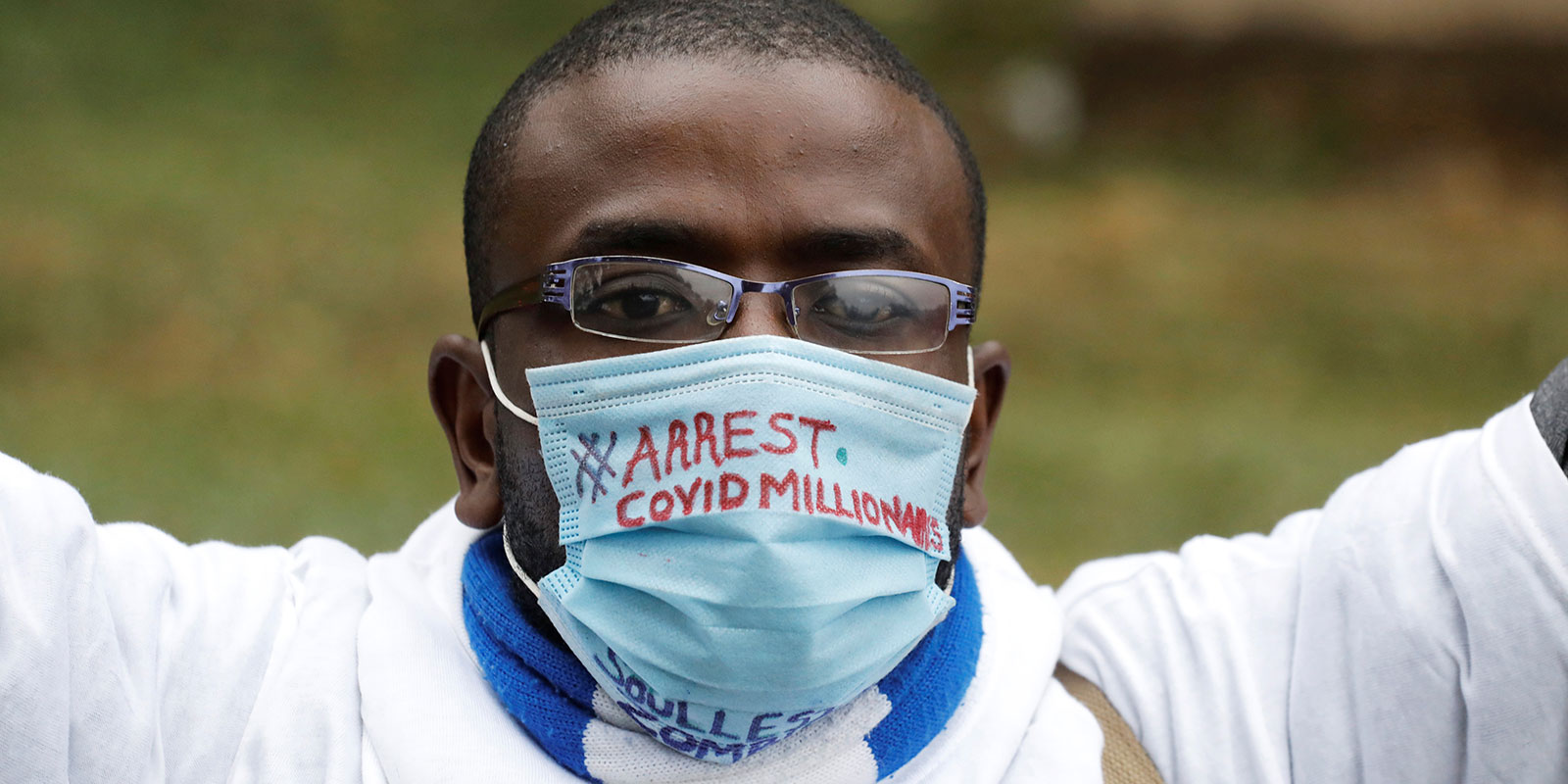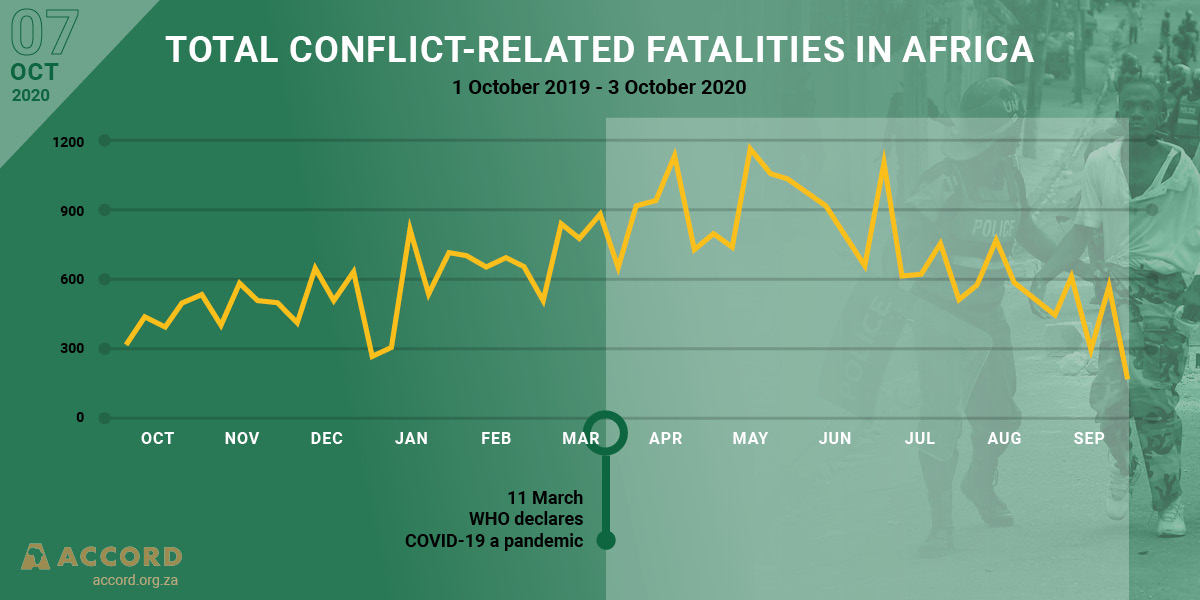At the onset of the pandemic, African governments took the difficult decision to limit economic and social activities significantly to prevent the spread of the virus. However, some of these decisions exacerbated the already challenging circumstances many people faced, and this strained their trust and relationship with state institutions. This can be exemplified by the way in which people were arrested for failing to comply with lockdown regulations – and, in some cases, were treated harshly by security personnel. The severity of poor decision-making around the pandemic has resulted in many people now having criminal records for being charged with offences that would not have been crimes in a non-COVID-19 context.
African countries took early steps to contain #COVID19. This strategy seems to have been effective at containing the virus, but it compromised livelihoods, further exacerbating existing socio-economic and political vulnerabilities
Tweet
Seven months into the pandemic, various countries continue to experience strained relations between citizens and state institutions. For example, in Zimbabwe, the consequences of the pandemic exposed the country’s weak health infrastructure, which led to a number of strikes. In response, the country’s military and police arrested opposition members, activists and journalists, following an anti-government protest in July. Approximately 60 people were arrested in the clampdown, and “[h]uman rights groups have accused President Emmerson Mnangagwa’s administration of arresting those who have dissented under the guise of enforcing anti-COVID-19 lockdown rules”.

Crime-related incidents also took centre stage during the lockdowns. Whilst there was an increase in illicit organised crime, such as the sale of tobacco and cigarettes, which were banned, there was a decrease in violent crime in some countries, such as South Africa. “South Africa’s first levels of lockdown substantially reduced violent crime, making it one of the few countries in the world to record fewer deaths overall as a result of the COVID-19 pandemic in that period.” On 31 July, however, it was reported that there was a 1.4% increase in murders overall, making 2020 the deadliest year on record for South Africa. This could be an indication that with the easing of lockdown measures, violent crimes began to increase. A significant development that dominated the media in recent weeks was the exposure of corruption-related incidents in the management of financial resources that were meant to aid vulnerable groups. The Ugandan government recalled its ambassador to Denmark and her deputy after they were recorded in a Zoom call allegedly plotting to pocket money allocated to deal with COVID-19, and in Somalia, four top health officials were sentenced for misappropriating pandemic relief funds. In South Africa, several key government officials and politicians were either suspended or are under investigation for alleged misappropriation of funds earmarked for the country’s COVID-19 response.
Throughout the lockdown, a dominant and concerning trend was an increase in sexual and gender-based violence against women and girls. As the lockdown measures eased over time, gender-based violence continued to take place. During August, the ACCORD data reflects a high incident rate of violence against women in countries including South Africa, Malawi and Egypt. This is a setback in efforts to combat gender-based violence, together with efforts on women, peace and security, as resources are already strained in these countries.
Seven months into the #COVID19 pandemic, and due to the resilience shown by the people of Africa there has been no significant spike in unrest or violent conflict to date
Tweet
Whilst there are many aggravating factors that have been brought about by the pandemic, a continental strategy has been put in place to respond to the health crisis in a unified way. The Africa Joint Continental Strategy for COVID-19, which was developed by African health ministers, together with the African Union COVID-19 Response Fund, aimed to strengthen the collaboration among its member states to mobilise resources. An Africa Taskforce for Coronavirus (AFTCOR) was established to provide technical assistance on case detection and containment. “In collaboration with the World Health Organization (WHO) and the West Africa Health Organization (WAHO), AFTCOR helped increase the number of African laboratories with COVID-19 testing capability from two to 43 by mid-March 2020.” Vaccine trials that have commenced in South Africa – and being the only African country thus far to do so – is a progressive step for Africa joining global efforts to develop a vaccine. According to Shabir Madhi, professor of vaccinology at the University of the Witwatersrand, “the major motivation for COVID-19 vaccines being evaluated at an early stage in South Africa is to generate evidence in the African context on how well these vaccines work in settings such as our own.” Should South Africa succeed in the development of a vaccine, it will be a contributing factor to African solidarity and prioritising Africa’s needs in the fight against the pandemic.
African countries have been dealt a heavy blow with the additional socio-economic challenges brought about by the measures to contain the COVID-19 pandemic. However, the resilience that the people in most of these countries have shown in the face of this challenge has resulted in no significant increase in COVID-19-related deaths, outside of South Africa. There has also been no sustained spikes in violent unrest or conflict in Africa over the last seven months. Despite serious hardships and damage to African economies, this resilience should help Africa to recover from COVID-19 once a vaccine has been developed and sufficiently distributed.
Marisha Ramdeen is a senior programme officer in the Preventive Action and Mediation Cluster at ACCORD.

